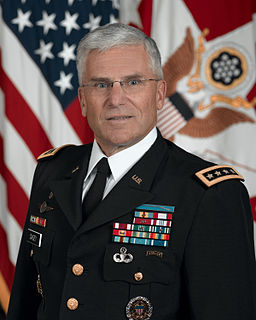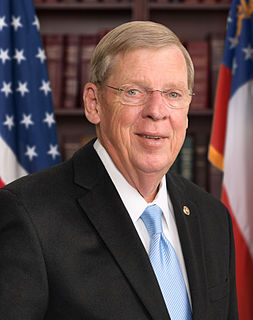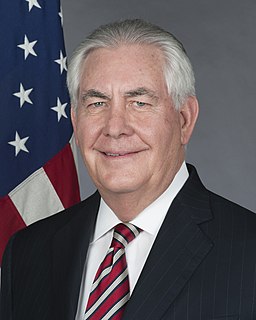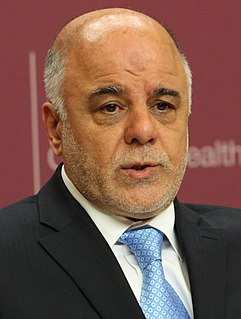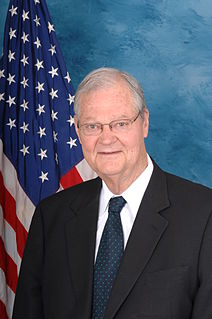A Quote by Richard Armitage
We've had Saudis and Jordanians and Pakistanis who have - and Syrians - who have been involved in armed attacks against coalition forces in Iraq.
Related Quotes
The Western alliance should have supported the Sunni opposition against the Assad regime from the beginning. As far as Iraq is concerned, if it had stayed stable the way it was in 2008, IS would not have been able to expand in Iraq the way they did. The mistake was that Barack Obama withdrew the armed forces from Iraq too fast.
One of the real costs of the war is that our security is actually less than it otherwise would have been - ironic, since enhancing security was one of the reasons for going to war. Our armed forces have been depleted - we have been wearing out equipment and using up munitions faster than we have been replacing them; the armed forces face difficult problems in recruitment -by any objective measures,including those used by the armed forces, quality has deteriorated significantly.
Unlike previous wars, our enemy now is a stateless network of religious extremists. They do not obey the laws of war, they hide among peaceful populations and launch surprise attacks on civilians. They have no armed forces per se, no territory or citizens to defend and no fear of dying during their attacks. Information is our primary weapon against this enemy, and intelligence gathered from captured operatives is perhaps the most effective means of preventing future attacks.
We know that the government in China has been involved in cyber attacks before. I look at our partners around the world, our traditional allies, our NATO partners who are making the same assessment. We share so much with them and rely on their technology, their expertise and interoperability in many aspects of our own armed forces.
I worked with the Nato Military Committee. The Head of the Luxembourg Armed Forces had equal standing with me, and I had to respect that. He was the leader of the armed forces of a sovereign country. I had to make sure he never thought that I was looking down on them, merely because they had less power than we did. With that kind of approach you can develop bonds of trust. I tried to do the same thing with my colleagues when I was Secretary of State.
If they succeed in creating an inclusive structure in virtually any peaceful form, Iraq succeeds. If they fail, the U.S.-led coalition fails almost regardless of its military success and that of the new Iraqi forces, and Iraq will move towards division, paralysis, civil conflict and/or a new strongman.



